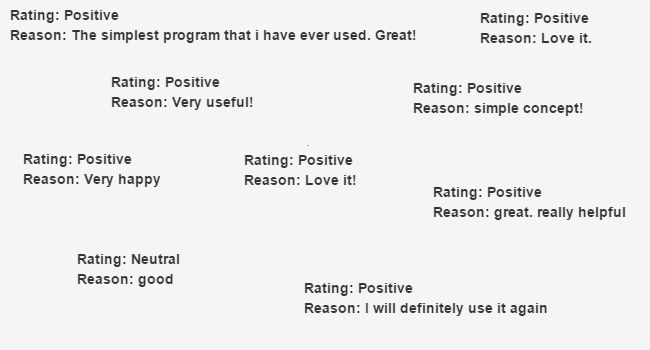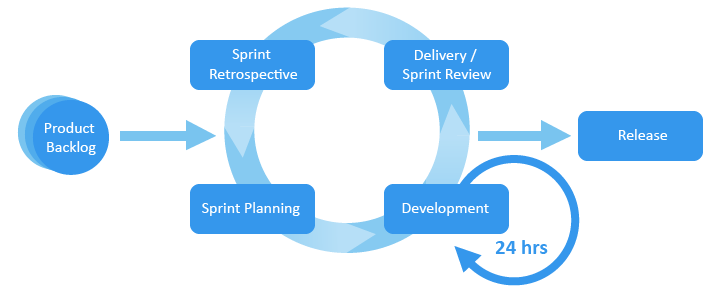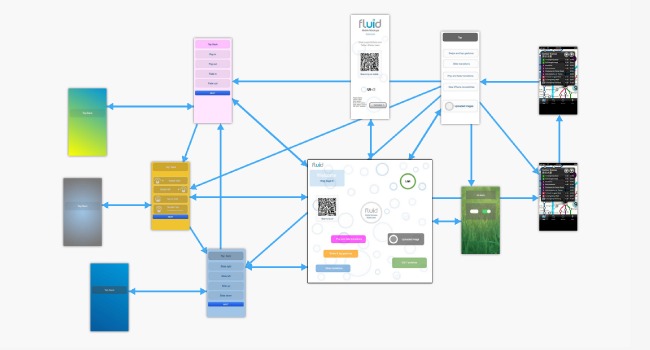No matter how good or bad your day, somebody somewhere is doing something great in your company. Take 30 seconds to celebrate one of those things. Tell your team how other teams are getting on and how they are pushing towards the same goal the production team is. Often the team will reciprocate - calling out great work done by other members and every one of your meetings will be off to the most positive possible start.
Recognise when your team achieves their goals as well as when those goals materialise into success.
Many years ago, I worked with a team that put in a particularly arduous sprint to ensure a product was delivered to market on time. Everyone pitched in, put in long hours and we created a really good quality release. It launched on a Monday morning, and that Friday I asked my manager if there was money to do our customary team lunch. “No” was the answer - the product hadn’t performed well in the first few days and already advertising budgets were being directed elsewhere.
I was deflated. The team was deflated. There was nothing we could do to affect the market performance - we delivered successfully to the specification that we had been asked to. While overall company performance is always paramount, teams work towards that in stages.
Your customers see a product that already solves their problem, and solves it well.
It happens to every team at one stage or another. An endless list of bugs and user reported issues bringing you down. Each pass by QA seems to unearth new problems. You’re stuck in the mud with your wheels spinning, going nowhere.
So stop. Step back. Take a minute. Think about how your customers see your solution and how good it is already.

The flaws you see, the lack of features, the dark places - they pale in comparison to the fact that you have already created value for your customers. You are simply adding even more awesome. Never forget that.

There are a lot of days your servers don’t go down. Thank your sysadmin today for a job well done.
Ambiguity in communication kills confidence in your team.
I studied linguistics and AI, but I didn’t think I’d spend most of my life thinking about the importance of excellence in communication. Dave’s two rules for teams that communicate happily are as follows:
1. Every question must have two parts:
If a person asks a question that is not directed at another single person, immediately clarify who is responsible for answering (or assign that responsibility) and reinforce with the asker how the question should be asked in future.
2. The communicator is always responsible for ensuring they are understood.
It’s not good enough to tell someone you told them something. You have to ensure you are understood at the level necessary to deliver the work successfully. Otherwise, it is your fault, not the listener’s.
People make mistakes. By all accounts, lots of them. But how you deal with them will define your team’s ethos.
A happy production team is one where people feel confident in discussing their mistakes and how they could do better in future. It’s one where praise is apportioned for doing the right things as well as delivering them successfully. Using Scrum, you should be iterating quickly - which means a mistake is only a stepping stone towards success. Just iterate when you don’t get it right.

Make sure there is learning in a fear free environment with a focus on getting better every day and constant individual improvement. Combined, these contribute to a sense of personal development and progress, which feeds back into the team and raises the enjoyment for everyone involved.

Processes should exist solely to boost the team’s overall productivity - not for punishing mistakes by bringing everyone down to the lowest common denominator. Individual mentoring needs to solve that problem instead.
The only companies that don’t have problems are ones that have no users, no sales and no product. And that’s a real problem.
Every day, new frustrations arise in your team that need solutions. Some days they are server issues, some days they are communication issues, some days they are sales issues. These are all because your company is growing and facing new challenges. Acknowledging them openly will help build the confidence in your team and encourage everyone to resolve them together.
Having no problems is the worst possible problem.

Obligatory cheeky plug for our web and mobile prototyping tool :)
Here’s hoping you have a happy, productive day!
Dave